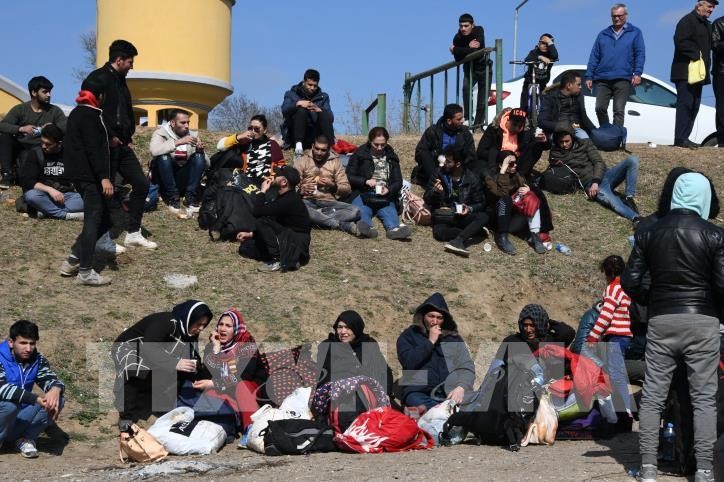(VOVWORLD) - Turkey has opened its border with Greece, an EU member state, to allow thousands of refugees and migrants to head to Europe. The migration creates concern of a new humanitarian crisis, which may be worse than that in 2015, because Europe is currently struggling with the Covid-19 pandemic.
 Refugees gathered in Turkey's Edirne province near the border with Greece. (photo: VNA) Refugees gathered in Turkey's Edirne province near the border with Greece. (photo: VNA) |
After their negotiation on March 9, the EU and Turkey will meet again on Thursday to seek a suitable solution to handle a new wave of migrants to Europe and avoid a migration crisis similar to the one in 2015.
Why Turkey opens its border?
In March 2016, the EU leaders signed an agreement with Turkey to end the refugee crisis. The EU agreed to give Turkey 6 billion euros and back Turkey’s negotiations for EU membership. In return Turkey would keep the migrants on its territory. The deal has proven to be effective over the past 3 years. The number of refugees from Turkey to Greek islands reduced sizably from a peak of 7,000 people a day to some hundreds. But it has increased again since 2019.
One of the reasons is that Turkey’s accession to the EU has become more difficult after the EP decided to freeze all new membership negotiations.
Meanwhile, armed conflicts between Turkish and Syrian forces in Idlib province, the last stronghold of the Syrian rebels recently, has exacerbated the refugee issue, an obsession of EU countries over the years. Being bogged down in the Idlib crisis, Turkey has received no support from Western countries. President Erdogan said it will open the door for migrants and refugees to Europe.
Since February several Syrian refugees have crossed Turkish border to Greece and Bulgaria.
Double crises
The EU has resumed negotiation with Turkey to seek solutions for the refugees from Syria and Middle East countries. In their first negotiation on March 9th, both sides agreed to form a working team to carry on with the agreement signed in 2016. The EU agreed in principle to provide financial support for the refugees, Greece, and Turkey. The next negotiation is scheduled to take place on Thursday.
The EU is in a difficult period to settle the Brexit issue and deal with internal economic and budget matters. It’s now also the epicenter of the Covid-19 pandemic while the issue of migrants at Turkey's border with EU countries cannot be solved in the near future.